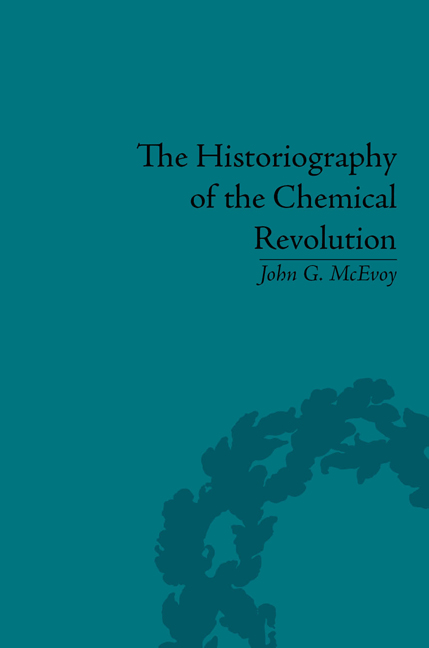Book contents
- Frontmatter
- CONTENTS
- Dedication
- Acknowledgements
- Preface
- Introduction: The Philosophical and Historiographical Terrain
- 1 Positivism, Whiggism and the Chemical Revolution
- 2 Postpositivism and the History of Science
- 3 Postpositivist Interpretations of the Chemical Revolution
- 4 From Modernism to Postmodernism: Changing Philosophical Images of Science
- 5 The Sociology of Scientific Knowledge and the History of Science
- 6 Postmodernist and Sociological Interpretations of the Chemical Revolution
- 7 The Chemical Revolution as History
- Notes
- Works Cited
- Index
5 - The Sociology of Scientific Knowledge and the History of Science
- Frontmatter
- CONTENTS
- Dedication
- Acknowledgements
- Preface
- Introduction: The Philosophical and Historiographical Terrain
- 1 Positivism, Whiggism and the Chemical Revolution
- 2 Postpositivism and the History of Science
- 3 Postpositivist Interpretations of the Chemical Revolution
- 4 From Modernism to Postmodernism: Changing Philosophical Images of Science
- 5 The Sociology of Scientific Knowledge and the History of Science
- 6 Postmodernist and Sociological Interpretations of the Chemical Revolution
- 7 The Chemical Revolution as History
- Notes
- Works Cited
- Index
Summary
Sociologists of scientific knowledge responded to the naturalist call of the Strong Programme with arguments and considerations that straddled the traditional boundaries and ‘levels’ between philosophy and sociology. Their concerns and interests were as much philosophical, and especially epistemological, as they were sociological. By showing how the social dimension of knowledge shaped or determined what count as facts, discoveries, inferences, objectivity and credibility in science, finitism upheld the claim that ‘social factors’ constitute, rather than merely influence, the content and development of scientific knowledge. Squarely opposed to epistemological individualism, which grounded knowledge in individual experience or cognition, finitism maintained that the ‘fundamental and irreducible point’ of ‘the sociological study of scientific knowledge’ is to show ‘in what ways that knowledge has to be understood as a collective good and its application as a collective process’. This chapter traces the development of the discipline of the sociology of scientific knowledge in the 1970s, 80s and 90s, showing how the cultural transition from modernism to postmodernism shaped its evolving conception of the social constitution of science. It also relates these broad philosophical and disciplinary developments to the historiography of science promulgated by Steven Shapin and Simon Schaffer in Leviathan and the Air-Pump and other essays, which were important points of mediation between sociologists and historians of science.
- Type
- Chapter
- Information
- The Historiography of the Chemical RevolutionPatterns of Interpretation in the History of Science, pp. 169 - 194Publisher: Pickering & ChattoFirst published in: 2014



